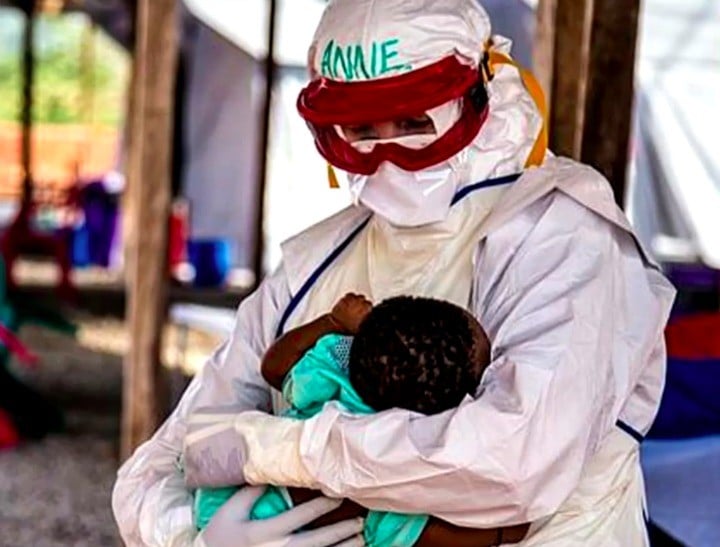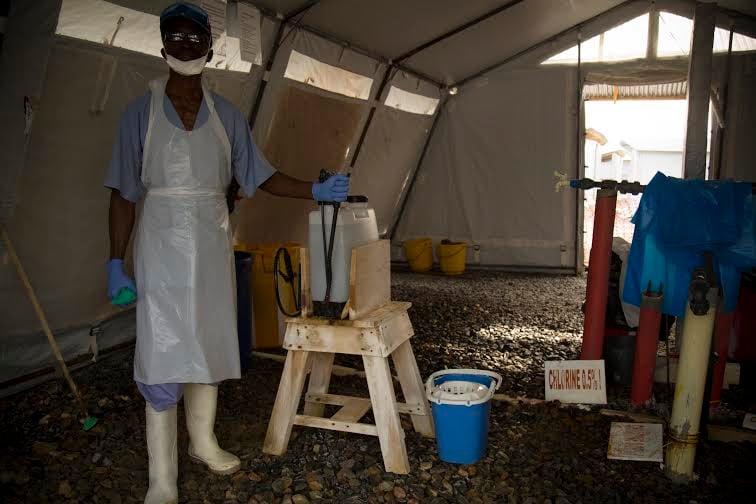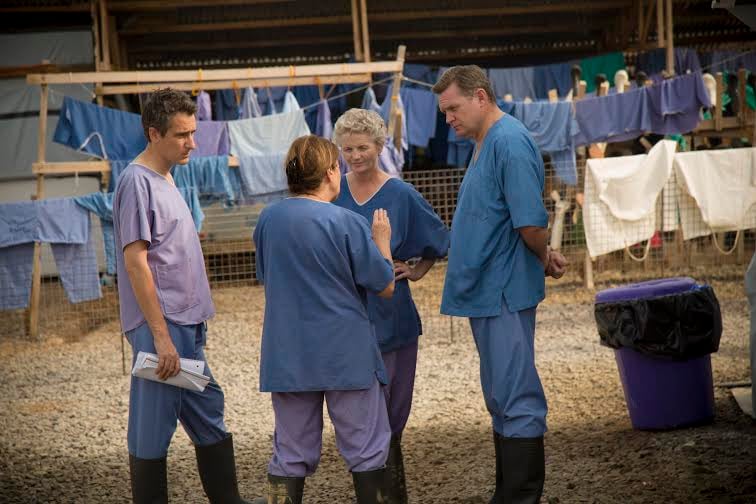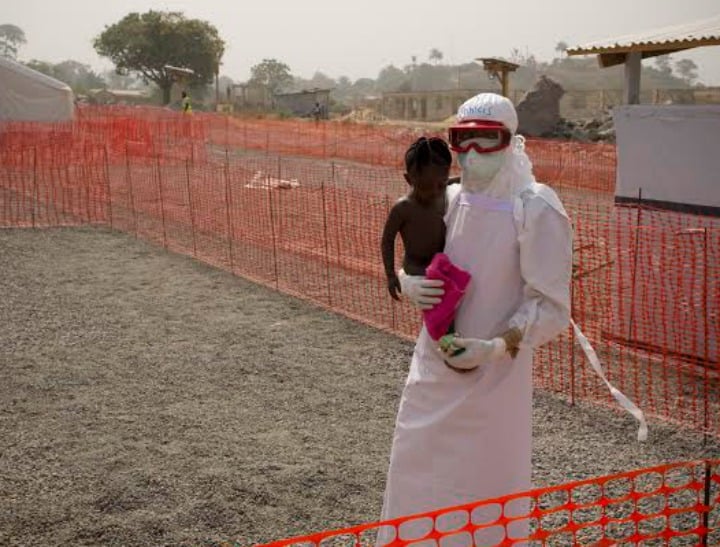
Tonight Anne Carey tells her story to Channel 9’s 60 Minutes.
Most Ebola victims die alone.
They don’t die alone because there are no family or friends who love them. They die alone simply because the very nature of the disease means that it’s just too dangerous to die surrounded other people.
Because – as reporter Michael Usher puts it in an incredible episode of 60 Minutes due to air tonight on Channel 9 – “just one unprotected touch from the infected, can be deadly.”
Australian woman Anne Carey doesn’t like to see people die alone.
The 56-year-old West Australian is a nurse with the Red Cross. And in the past year alone, she’s been on three separate assignments to the West African nation of Sierra Leone to help fight the war against Ebola.
Read more: All your questions about the Ebola virus. Answered.
“There comes a point where you know they’re going to die so there’s not much else in trying anything else except pain relief for them, to just make them comfortable. And you get used to that look – when people are going to die.”
“I just think touch is really important… So if you know someone’s going to die and you can spend 40 minutes more, it’s quite nice to do that so they’re not so scared because it must be really hard for them.”
Every day, Carey dresses in a protective suit, gloves, googles and boots and seeks to bring some comfort to the victims of the unforgiving virus that has claimed more then 8700 lives in the West African countries of Liberia, Guinea and Sierra Leone.





Top Comments
So sad
I can't watch the video, I'm in tears just reading about that poor mother losing all of her children. Life can be immeasurably cruel.